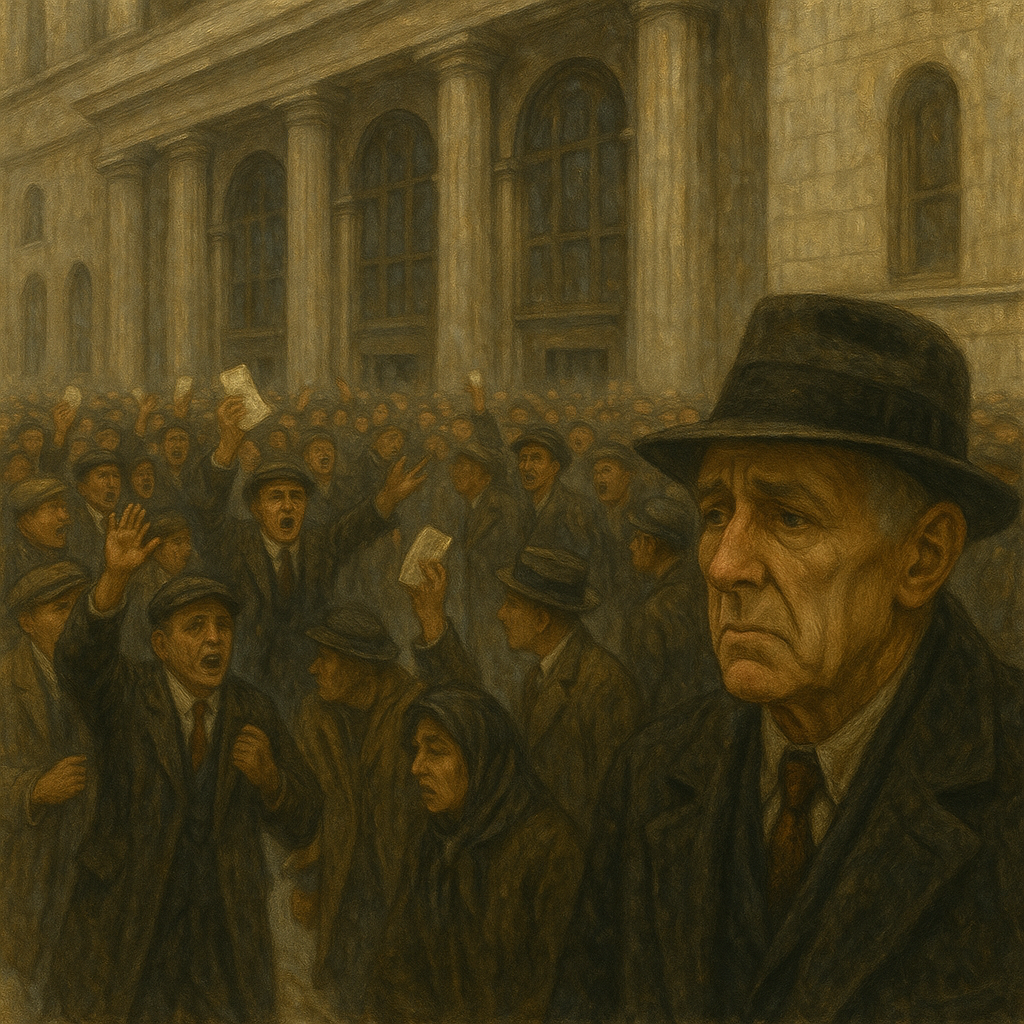Lesson 5: The Great Depression (Nationalism and World War I)
💥 Causes of the Great Depression
The Great Depression started in 1929. It was the worst economic crisis in modern history.
It began in the United States, but soon affected the whole world.
One big cause was the stock market crash. On October 29, 1929, people rushed to sell their stocks. The market crashed, and people lost all their money. This day is called Black Tuesday.
💬 A man in New York said, “Yesterday, I was rich. Today, I have nothing.”
Other causes included:
Factories made too many goods, but people weren’t buying
Farmers couldn’t sell crops for a fair price
Banks failed, and people lost their savings
Countries stopped trading with each other
😔 Effects of the Great Depression
The effects were terrible:
Millions lost their jobs
Families had no money for food
Homelessness increased
Many people waited in long bread lines just to eat
🧠 In the U.S., people built small homes from scraps and called them “Hoovervilles”—named after President Hoover, who they blamed for doing too little.
In Germany, things were worse. The country was still paying war reparations from World War I. The economy was already weak. Now, people became very poor and angry.
💬 A German father said, “I work all day, but I still can’t buy milk for my child.”
This opened the door for radical leaders like Adolf Hitler, who promised to make Germany strong again.
💡 Responses to the Great Depression
America’s New Deal
In 1933, Franklin D. Roosevelt became U.S. President. He started a plan called the New Deal.
It included:
Jobs programs to build roads and schools
Help for farmers
New rules for banks and businesses
🧠 Fun Fact: Artists and writers were paid to make paintings, plays, and books. Some parks and buildings made in the 1930s are still used today!
The New Deal didn’t fix everything, but it gave people hope.
Spending Cuts in Great Britain
In Britain, the government made a different choice. They tried to save money by cutting spending.
Less help for the unemployed
Lower pay for workers
Smaller government budgets
This didn’t help the economy grow much, but Britain avoided extreme political movements like in Germany.
The German Economy
Germany had no New Deal. Instead, more people turned to the Nazi Party, who promised jobs and pride.
The government:
Built roads and weapons
Stopped paying reparations
Blamed others (especially Jews) for problems
🧠 This helped Hitler become Chancellor in 1933. The economy got better—but freedom and peace got worse.
